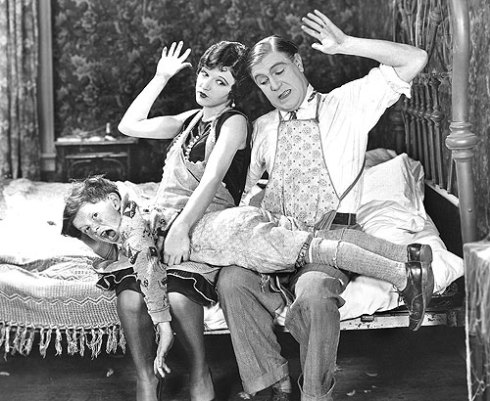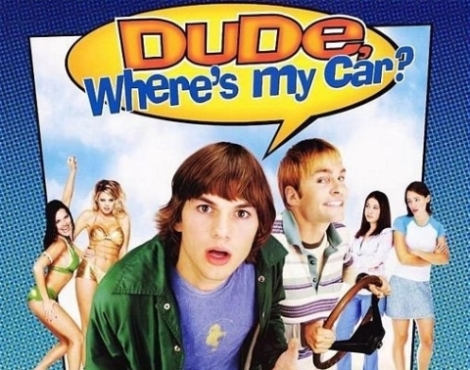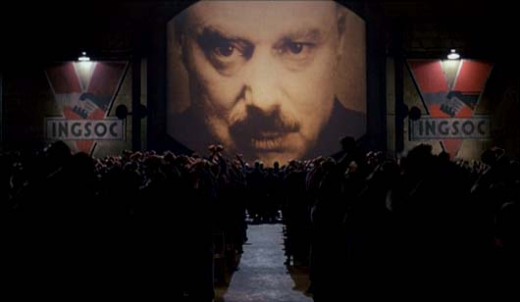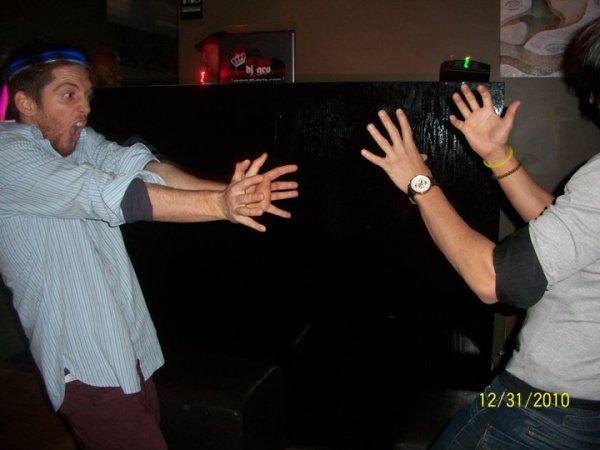Practice Project Day 1
So…….
All the practice spots that I know of in Copenhagen where closed due to the holidays (grrr). But I found a spot for tomorrow and the next couple of weeks starting from tomorrow so that’s all good. I attempted to practice outside but it was rainy cold and winds in the storm strength caliber. So what do you do when you told your self to be really creative and work really hard for all of Jan? one Practices in a very small confined space also known as the kitchen. I know people tell you to typically train in many different environments to stimulate ones brain in order to be more creative (which I agree with) but practicing in a 40 cm. broad kitchen area simply did not work for me. I made no creative progress in doing so. I will absolutely recommend try practicing in small spaces because it trains bboys for the cyphers they will have to encounter, but just stay out of spaces that are smaller than the length of your legs. Its impossible.
But tomorrow I shall strike again with a eager to break so strong that I can only receive results. In the mean time I have worked on editing the first batch of raw footage for my Bboy Short film and brainstormed new moves.
Keep Them Kids Out of Politics, They Are All Liberals Anyway’s
Keep Them Kids Out of Politics, They Are All Liberals Anyway’s
I guess the whole thing about young people not getting into politics is not really caused by the lack of interest after all. Rather because they are trying to keep us out! Yet another example on how American democracy is hypocritical: “Let’s bring democracy to the middle east, but let’s only do it at home when its beneficial”. Ideologically something is not quite right here
This is Why you Cannot Hit your Children or Put People in Jail in the Conventional Sense
So last night I had a lively philosophical discussion with my good friend (and good friend of my parents) the Street poet or as his name is in Danish “Gade Digteren”. We covered many and most of the major philosophical disciplines and it was a great honor to be in the company of such a great thinker. At one point in the name of conversation he asked me to explain why I do not believe in violence ( I consider myself a pretty peace full being). I know many others have often asked that same question: why I do not believe in violence in any form (except for in video games Marvel vs. cap-come all day everyday). So here is a couple of reasons taken from a paper I wrote at school ( I know I know its pretty long):
make sure also to check out my friends website: http://www.gadedigteren.dk/
Physical Punishment – Why You Can Never Hit Your Children
The following article will examine whether or not it is unethical to use physical punishment in order to cultivate the character of moral agents. In order to survey this question I will use the methods of Mr. Brucklehurst from the novel “Jane Eyre” as an example. I will follow a Kantian approach and create my argument from an a priori perspective. When breaking down the concept of physical punishment it becomes evident that it is immoral to physically punish as a means to cultivate, and that punishment infringes with the humanity principle. I will argue that it is immoral to physically punish anyone for their actions under any circumstances.
I define physical punishment as the use of force to hurt a human body directly or indirectly. Any action that inflicts physical stress on a human being in response to a choice taken by that person is considered punishment. This also includes physical restraint of the human body i.e. keeping a person in one place by force (one example of this could be tying someone to a tree or more extreme sending them to jail).
I shall first disentangle and define my argument then defend the argument against the challenges and then finally explain the moral consequences of my argument. When analysing the actions and conduct of Mr. Brucklehurst from the novel Jane Eyre it becomes apparent that he is driven by a Christian morality of duties. Brucklehurst believes that it is his moral duty to cultivate the girls at Lowood, whom he believes have strayed so far from the path of god that they need severe readjusting to enter the kingdom of heaven. Brucklehurst believes that by starving the bodies of his children he is feeding their souls i.e. bringing them closer to a divine experience of embracing the Christian god. He does this through punishment. The lack of food, the removal of hair, and the ridicule of Jane, are all ways in which Brucklehurst exercises physical force as punishment onto his students (Bronté p.87) But as we shall see from my argument the use physical punishment is never valid, not for Brucklehurst or for anybody else regardless of religious or utilitarian justifications.
When we disentangle the concept of physical punishment we find that it conflicts with the concept of property. If we acknowledge the view that every person consists of a body and a soul then the body inherently is the property of the soul. This means that every persons soul is their first and ultimate property. Physical punishment damages the body as we see with the many girls dying from starvation in Lowood. Punishment is therefore immoral because it damages people property. No one would argue that it is moral to damage another person’s car, but the body is just another property in the same way a car is. If we take a Kantian approach and run the categorical imperative i.e. try to universalize the concept of damaging other peoples property we will see that it is impossible to universalize because their would be no concept of ownership. If all people where damaging each others property, (including bodies), then there would be no sense of ownership and therefore nothing to damage. So from a Kantian perspective the concept of hurting another mans property is immoral because it cannot be logically universalized.
Physical punishment limits free will because it removes the choice from the person subject to the punishment. If a girl at Lowood is beaten as punishment then that girl does not have the option to freely argue against her verdict because the nature of force is obstructing her from doing so. Further the fear of severe punishment limits free will because people will act differently when their body or mental health is threaten even if their actions are indeed legitimate. This means that physical punishment leaves no room for discussion or dialogue: the person using force is always right whether it is actually legitimate or not. We can therefore state that punishment as a concept inherently infringes on human dignity because it limits free will. Kant defines human dignity as a concept grounded in free will. We are all equal because we have this ability to reason and freely act on this reasoning (Kant p.36). Actions become immoral when they limit free will because it degrades the reasoning agent to less than a human. It is under any circumstance bad to constrain free will because it is this very force to choose that defines humanity as a whole ( Kant p.36). Society has created marvellous concepts and systems such as highways skyscrapers, law, the internet, and any other human thing we can possible conceive of. But none of these things that define human society is created without free will. There would be no humanity without choice, and so by limiting free will we damage the foundation of our own existence.
Physical punishment is further immoral because it does not seek to cultivate moral agents but rather limit their actions. Punishment is an empiric form of argumentation. If a child is beaten for eating cookies, then the child will learn from experience that every time the he/she steals cookies from the jar then it will result in a beating. The child in this case will never realize the logical reasoning behind not stealing or binge eating cookies. The moment the parent (the punisher) turns around the child runs straight back to the cookie jar. Cultivation of morality should always happen through education. Cultivation of morality should never be through force because morality is discovered.

In order to describe this reasoning more clearly imagine a dystopian society somewhere in the future. In this society everyone is monitored such as in George Orwell’s “1984”. If a citizen commits an immoral action the immediate punishment is death. If such a scenario where to be true then everyone would walk around being very well behaved towards one another in fear of their life. But would anybody be truly moral? Understanding of morality here becomes the core of the issue. Morality comes from understanding human responsibility not performing it mechanically. By punishing people with force all that is reinforce is instinctual behaviour not to commit certain actions. The desire to do wrong will still be within people because they do not have the logical foundation to have better inclinations. A prime example of this could be the statistics of the numerous people that commit crimes after they are released from jail. Their bodies have been physically restrained for years, but nothing has been done to cultivate their reasoning. In many cases prisoners are released from jail with a more distorted view on reality than when they entered.
The use of force to punish and cultivate is committed not out of justice but rather in lack of better options or lack of knowledge. Violence and force is always the last available action because it brings humans out of civilization and back into an animal stage. If we look at the difference between animals and humans one finds that we are almost similar in every aspect except intelligence and the use of morality. Monkeys on average develop the same level of intelligence as a three year old child. This means that the only true difference between humans and animals is the ability to negotiate and perform empathy (Eccleston 2008). When using force the person committing the action inherently devaluate themselves, and the victim to, less than human. There is always a solution based on reason and logic to every situation.
From a Kantian perspective we find that physical punishment would not be acceptable because it always stays within the realm of consequences. One is only punished if the consequences of the actions committed turns out to be undesirable. Kant argues that in a perfect moral world (kingdom of ends) every moral agent is self legislative (autonomous) (Kant p.43). But if we use physical punishment then this perfect moral world cannot be established because morality is then enforced from an authority external to the moral agent. Kant believes that morality consists of moral obligations (duties) that are individually discovered as the highest authority for each moral agent. By physically punishing people the punisher takes away the authority from the universal law and becomes a middle authority. If we are to compare this example to Jane Eyre we see that the girl at Lowood does not fear god, but rather Mr. Brucklehurst. Morality is supposed to be respected internally not externally.
There are four challenges to my theory that the use of force is illegitimates:
- Physical punishment is necessary in order to cultivate human beings else they will never learn from their mistakes
- Physical punishment is legitimate as long as it is done to a person who is within a valid moral agents property/custody
- Physical punishment can be necessary at times in order to promote the most happiness in accordance with utilitarianism
- Society needs physical punishment to protect itself against criminals by putting them to jail.
When looking at the argument against physical punishment four main challenges arise. The first challenge claims that physical punishment is necessary to cultivate human beings because they cannot learn other wise. This is especially significant when looking at the concept of mistakes. People that hold this position will argue that humans will never learn from their mistakes if they are not physically punished. The argument claims that if there are no physical limitations or boundaries on the human soul, it will naturally start claiming everything around it until stopped. The notion here is that human beings are naturally greedy, selfish, and will use this desire to obtain for themselves at the highest capacity possible unless limited by others. We need physical punishment in order to make sure that people understand the notion of the greater good so their unlimited inclinations will not end up hurting themselves and others.
I believe that such an argument is invalid because there is no morality without reasoning: by physically punishing people we do not correct their reasoning but rather put limitations on their physical body. The consequence of this will never be a cultivation of the soul but rather degrading devaluation of the human being. Further the argument that humans are creatures with an unlimited thirst for self inclination is not sound. The claim falls short because it assumes that humans have no ability to self moderate unless externally controlled. If this is true then morality is an infinite chain of older people passing on the notion of the greater good to the younger generation. If this premise holds then how was the chain of morality started? Who or what passed on the original code of morality to the first people? And if one argues that morality was developed gradually over thousands of years then morals are relativistic. If morals are relativistic then there is no justification why we should physical punish to adjust people, there might be parts of the world where the wrongdoers conduct is accepted. It can always be argued that the immoral person is acting out of a moral code that is just as valid as the one the he is being judged by. Claiming that humans are unable to internally moderate is also problematic because such a reality would mean that at any given opportunity to binge (when not in danger of being punished) people would continue until the given resource was exhumed or until stopped. In such a world humans would be occupied with holding each other down rather than helping one another. This would eliminate the notion of genuine help. Although some people might have a very negative view on mankind I do not see this scenario to be true because people help one another everyday and without the desire to get anything in return.
The next challenge to my argument lies within the discussion of property and when a human being is considered a moral agent. Many of my friends have argued, when I spoke to them about my morality, that they consider children to be property of their parents until they reach the legal age of adulthood (in America this age is 18). When someone or something is within a person’s property then that person has the freedom to do whatever they want with ones property: this therefore includes punishing their children. A child is the property of its parents because the child is not physically or mentally ready to be independent and must become cultivated by its parents.
I do not find this to be a good challenge to my argument for several reasons. If children are considered property of their parents then punishing once pets would essentially be the same as punishing ones children. This inherently means that until age 18 children are equal to the family cat. We also see that the legal age of adulthood varies from culture to culture. In America it is 18 while in other countries it is 16. Adulthood can also be defined by a whole set of other factors, like in certain tribal cultures, where tribes require men to go through a task before they can be considered adults. If a boy does not complete the task at the typical age he will just have to redo the task until he becomes a man. The property argument is a relativist claim because it is solemnly based on what the general public believes to be the definition of adulthood.
(in the movie 300 boys are send into the wild to fight before they can become men)
I would also argue that claiming another person to be ones property is a slippery slope that leads back into legitimizing slavery. If parents own their children what stops a factory owner from owning his workers? What do parents do? They protect the health and security of their children and provide them with the monetary resources to establish their lives. This same relationship of responsibilities is seen between employers and workers: the employer makes sure nothing happens to their workers, often provides them with health insurance and in many companies, a security corp. The employer further provides the worker with monetary resources to live their lives – or in short a salary. How is that very different from parents and their children? It is further illegitimate to say that parents own their children because by doing so it implies that ownership is determined by the physical condition of the body. Does one own somebody because they are not mentally and physically developed to be independent? But if that is the case will disabled people never reach their own independence? We see that disabled community is a very strong and independent unit that fights for its own empowerment and would be very offended by such a notion (Cohen Alan 2011).
There is also the challenge that morality is not based on deontology but rather within consequentialism. This classic debate leads back to Kant vs. Mill and essentially asks the basic question where is morality grounded? For consequentialism morality is grounded in the results of actions. One must always calculate the best outcome of possible choices before acting and then promote the greatest amount of utility through that action. With regards to punishment this means that if punishing a person promotes the most utility doing so is valid, even if it means damaging that person’s body. This philosophy justifies itself by claiming that happiness and absence of pain is the ultimate good and has intrinsic value. When asking people why they make the choices they make sub reasons will always be presented until, if pushed far enough, the answer becomes to obtain happiness. This means that for consequentialism morality of duties is incorrect because one can perform moral actions in accordance with duty without promoting any happiness for anybody. Such actions are completely legitimate and morally valid even if they create no human happiness what so ever (which for the utilitarian seems completely absurd). A great example of this is the challenge to Kant’s notion that one can never lie is the piece On a supposed Right to Lie because of Philanthropic Concerns in which Kant’s challenger creates a scenario where an axe murder comes to a persons door and asks for the location of a friend (Kant p.63). According to Kant the person cannot lie and is by duty obligated to give up the location of his friend. For the utilitarian such a choice would seem absurd because the consequences would evidently be the brutal murder of a human being.
To respond to this foundational challenge that morality is based in consequence and not in duty I first propose looking at the applicability of utilitarianism. If utility is to be sound then true morality is unachievable because the Greatest Happiness Principle is impossible to correctly follow due to its lack of boundaries. If one is to achieve the most happiness for everyone involved in an action or choice, how does one know where the limit of involvement is set? There are always in any given situation too many possible variations and view points to take into account in order to possibly ever be able to make a choice that surely promote the most happiness. Only if a human being had all possible knowledge in the world available in the exact moment they make the choice would that person truly be able to know which choice of action would promote the most happiness. This is of course impossible because no human can contain all that information and because there from a theoretical standpoint is limitations to human knowledge. There are simply things we can and will never know which makes true utilitarianism impossible.
The final challenge to my argument is that in order to protect itself society needs to physically punish criminals by putting them to jail. The argument is here that if criminals went unpunished society would collapse. This society would lead to a disbelief in the law, currency, and the system, which eventually would lead to collapse. It is therefore crucial that the government has the ability and authority to physically constrain and punish individuals or groups that commit crimes towards humanity. Restraint is a necessity that is given only to the few in power in order to benefit the greater good.
The following challenge assumes that there is only one way to safely keep threats to the public under control. The concept of jail does not necessarily have to physically constrain the individual in the way it is currently implemented. Society does not need to physically restrain people because there are other options that achieve the same result but does not damage the body by constraining it within a cell. Instead people can be put into surveillanced community service, counselling, and rehabilitation centres. Through such programs the moral agent will learn about the illegitimacy of their actions without being physically restrained. Should the moral agent choose to continue to act immoral while under the surveillance of the program the state will have the legitimate authority to temporarily restrain and jail the individual and bring the individual back to the program. The government will have the authority to do so because the use of force is not the punishment in itself but rather used to get the individual to the punishment (which is education and community service). In this way we see that arresting someone and assuring that people maintain their new duties does not conflict with the notion of not being allowed to use force to punish. The only force used is to bring the moral agent to the punishment.
In conclusion one can see that it is immoral to use physical punishment to cultivate people because it infringes on their dignity, their right to property, it does not cultivate moral agents, and it degrades both the punisher and the punished to less than human. Physical punishment further obstruct moral agent from being autonomous. People cannot be self legislating when morality is being dictated from an external physical source. Although my argument seems rather extensive it does not stop parents from correcting their children or government from protecting its citizens. It is still possible for law enforcement to catch and arrest criminals but it is the punishment of those criminal that differs.
Works Cited
Brontë, Charlotte, and Stevie Davies. Jane Eyre. London: Penguin, 2006. Print.
Cohen, Alan. “Writ 102 Disability and Representation.” Writing Class at Marymount Manhattan College 2011. Marymount Manhattan College, New York. 2011. Lecture
Eccleston, Paul. “Ape Genius Reveals Depth of Animal Intelligence.” Telegraph.co.uk – Telegraph Online, Daily Telegraph and Sunday Telegraph – Telegraph. 02 May 2008. Web. 19 Dec. 2011. <http://www.telegraph.co.uk/earth/earthnews/3341339/Ape-Genius-reveals-depth-of-animal-intelligence.html>.
Kant, Immanuel. Groundings for the Metaphysics of Morals. 3rd ed. Indianapolis: Hackett, 1993. Print.








